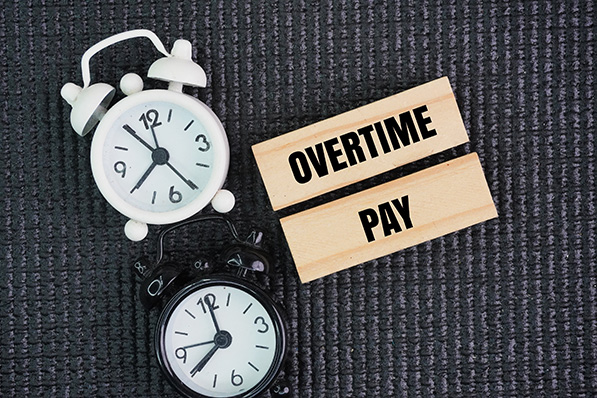Last week, my company (which operates 24 hours a day) had several employees call out sick at the last minute. As a result, we had to require one of our employees to work two consecutive back-to-back shifts. The employee worked from 4 p.m. on Thursday afternoon until 8 a.m. on Friday morning. I need to understand what our overtime requirements are in this situation. The employee is insisting that because he worked 16 hours in a row, he should receive overtime and double-time pay for the last 8 hours. Is he correct?
That depends on how your company defines a workday, as discussed below.
The basic rules in California for overtime are that an employee is entitled to overtime pay for all hours worked over eight hours in a day, and 40 hours in a week. In addition, an employee is entitled to double-time pay for all hours worked in excess of 12 hours in a day.
State Definitions
However, this begs the question as to what the state means by the words “day” and “week.” A day is defined as “any consecutive 24-hour period starting at the same time each calendar day, and a week is defined as any seven consecutive 24-hour periods starting on the same calendar day each week. (California Wage Orders, Section 2(v) and the Division of Labor Standards Enforcement’s Enforcement Policies and Interpretation Manual, Section 55.8)
Unless a company defines it otherwise, the state assumes that the workday begins at 12:01 a.m., and ends at 12:00 midnight, and that the workweek runs from Sunday through Saturday.
The daily overtime calculation begins at 12:01 a.m. each day, and resets again 24 hours later.
Company Example
In your example, the employee began working at 4 p.m. on Thursday and worked until midnight on Thursday. In that he did not exceed 8 hours of work on Thursday, no daily overtime is owed for that day.
The employee then began working on Friday at 12:01 a.m. and completed his shift at 8 a.m. Unless the employee came back into work again at some point on Friday, the employee did not exceed 8 hours of work on that day, and no daily overtime pay would be owed.
In this situation, even though the employee worked 16 consecutive hours, because it was divided equally between two separate workdays, no daily overtime is owed by the employer.
Although no daily overtime is owed in this example, you must also be cognizant of the total hours worked in the workweek. If the employee ended up working more than 40 total hours for the week, those hours in excess of 40 for the week would have to be paid at a premium rate.
From an employee morale standpoint, and an employee safety standpoint, it is a best practice to avoid this type of lengthy work period whenever possible.
David Leporiere, Employment Law Expert, CalChamber
CalChamber members can read more about Overtime Pay in the HR Library. Not a member? Learn how to power your business with a CalChamber membership.
